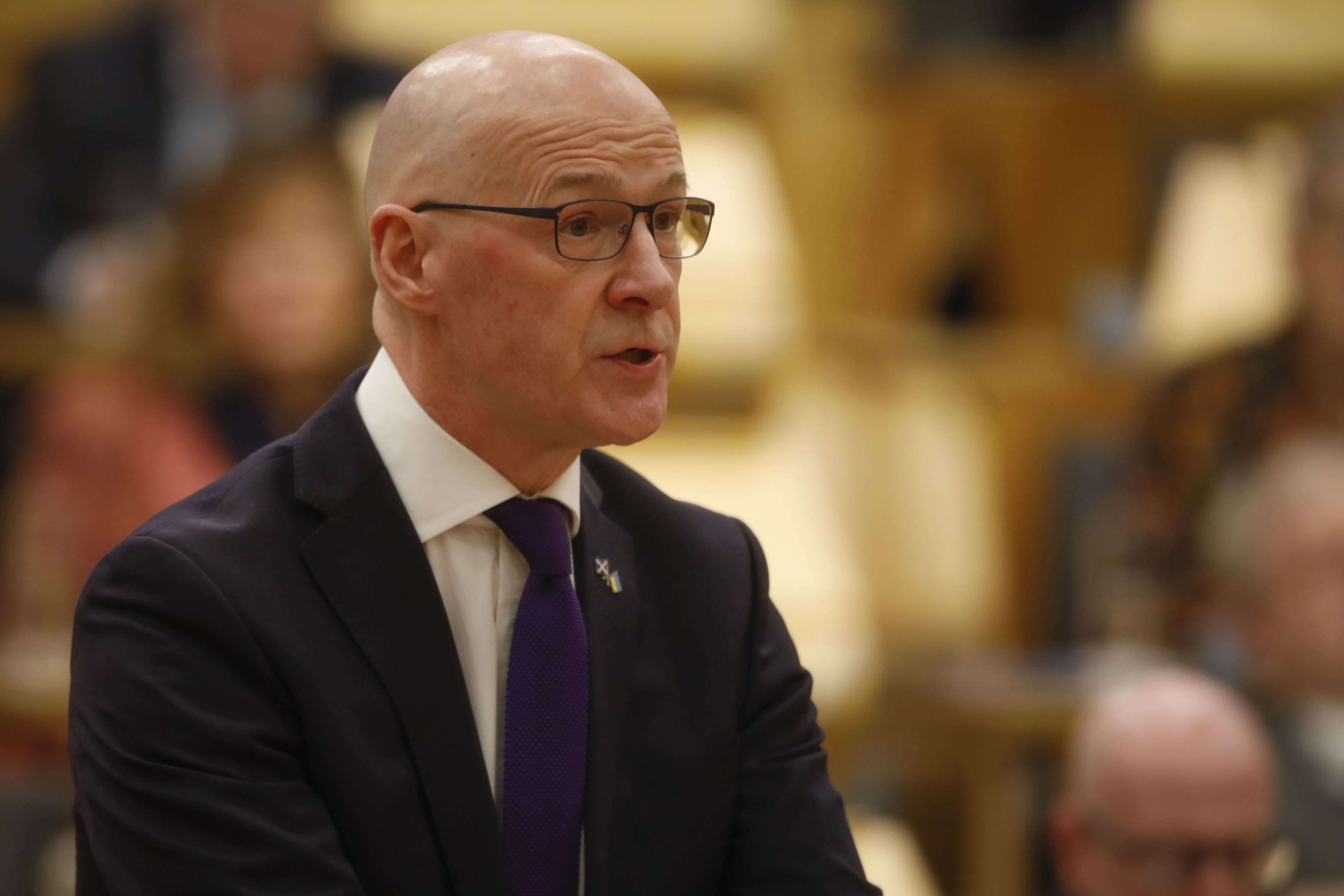Key points from Scottish Government budget
Deputy First Minister John Swinney outlined plans for the £59.8 billion budget.

Your support helps us to tell the story
From reproductive rights to climate change to Big Tech, The Independent is on the ground when the story is developing. Whether it's investigating the financials of Elon Musk's pro-Trump PAC or producing our latest documentary, 'The A Word', which shines a light on the American women fighting for reproductive rights, we know how important it is to parse out the facts from the messaging.
At such a critical moment in US history, we need reporters on the ground. Your donation allows us to keep sending journalists to speak to both sides of the story.
The Independent is trusted by Americans across the entire political spectrum. And unlike many other quality news outlets, we choose not to lock Americans out of our reporting and analysis with paywalls. We believe quality journalism should be available to everyone, paid for by those who can afford it.
Your support makes all the difference.Deputy First Minister John Swinney has delivered the Scottish Government’s annual budget statement at Holyrood, with changes to tax and public spending.
Details were leaked to the BBC ahead of the scheduled statement, leading to Parliament being suspended for just over half-an-hour before the speech.
The 2023/24 Scottish budget is worth £59.8 billion and comes after a year of “economic turmoil” caused by inflation, the war in Ukraine and the aftermath of the pandemic.
Here are some of the key points from the Deputy First Minister’s speech.
Tax rates rising for high earners
Those earning more than £43,662 a year will have to pay more tax.
The higher rate of tax will go from 41p to 42p.
For the top rate of tax, the threshold will be reduced to £125,140 and increase from 46p to 47p.
The changes come despite an SNP manifesto pledge to freeze income tax rates and bands.
Social security
The range of benefits delivered by the Scottish Government will all increase in line with inflation as it was in September – 10.1%.
Land and Buildings Transaction Tax (LBTT)
LBTT for residential and non-residential properties will remain the same, and relief for first-time buyers will continue.
However the additional dwelling supplement, which applies to people buying second homes, is increasing from 4% to 6%.
Business rates
Also known as non-domestic rates, this tax is administered by councils.
The basic rate, which is also called the poundage, will be frozen at 49.8p. The intermediate property rate, at 51.1p, will be charged on properties with a rateable value of between £51,001 and £100,000. The threshold for the higher property rate will increase from £95,000 to £100,000.
Council tax
The Scottish Government will not mandate a council tax freeze, meaning local authorities will be able to set their own tax levels.
The Deputy First Minister said councils will get a funding boost of £550 million next year.
In his budget speech, Mr Swinney said: “I encourage councils to consider carefully the cost pressures facing the public when setting future rates.”
NHS
Spending on health and social care will increase by £1 billion as a result of the tax changes announced by Mr Swinney.
He said this will go beyond the additional £291 million Scotland will receive from Barnett consequentials.
Scottish independence
The Scottish Government had set aside £20 million for its plans to hold a second independence referendum next year.
However the Supreme Court’s recent ruling means Holyrood cannot legislate for its own referendum.
Mr Swinney said the £20 million will now instead go to the fuel insecurity fund, which helps people at risk of fuel poverty.
Ferguson Marine ferries
Extra money has been allocated to complete the two overdue ferries at Ferguson Marine, which have already exceeded their budget.
It includes an additional £15 million in the current financial year and £57 million next year for work on the vessels.